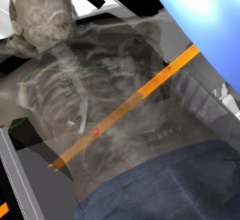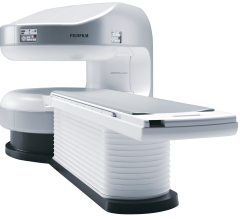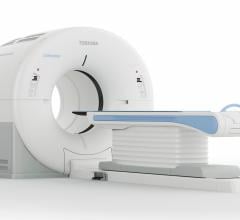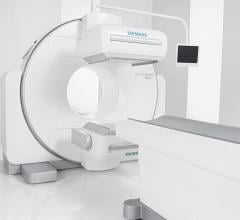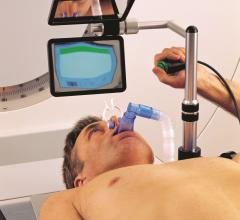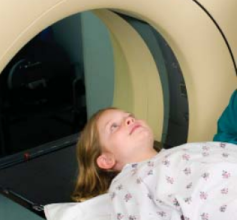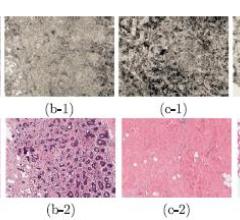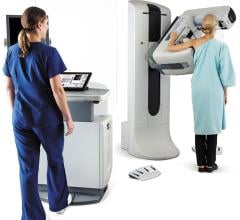Siemens Healthineers has announced that the Food and Drug Administration (FDA) has cleared Biograph Horizon Flow edition, a cost-competitive positron emission tomography/computed tomography (PET/CT) system that features the company’s revolutionary FlowMotion continuous bed motion scanning technology.
The alliance will study the feasibility of using CRnR’s converging x-ray lens technology as an effective radiotherapy and radiosurgery option. MD Anderson will develop technologies to enhance and enable clinical implementation of CRnR’s X-ray lens system called Mercy Beam.
The American Society for Radiation Oncology (ASTRO) issued a new clinical guideline for the use of stereotactic body radiation therapy (SBRT) in early-stage lung cancer today. While SBRT is the current standard of care for peripherally located tumors in patients who cannot undergo surgery, the new guideline addresses the appropriateness of SBRT for medically inoperable patients with high-risk clinical scenarios requiring curative focused therapy.
Fujifilm’s APERTO Lucent is a 0.4T mid-field, open MRI system addressing today’s capability and image quality needs ...
The milestone Imaging Dementia — Evidence for Amyloid Scanning (IDEAS) Study is working with government and academic researchers to launch three add-on studies to expand the impact of the core study where more than 18,000 people with cognitive decline but an unclear diagnosis will receive an amyloid PET scan.
The Food and Drug Administration (FDA) has cleared syngo.via VB20 for Molecular Imaging (MI) from Siemens Healthineers — a new release of the company’s established intelligent visualization software for multi-modality imaging.

SPONSORED CONTENT — Fujifilm’s latest CT technology brings exceptional image quality to a compact and user- and patient ...
Oncologists have access to advanced imaging technologies for excellent cancer patient care with the new Celesteion PUREViSION Edition PET/CT system from Toshiba Medical, a Canon Group company. The newest edition of Celesteion allows for ease and efficiency in PET/CT, CT simulation and diagnostic CT exams, to help diagnose and treat oncology patients.
SPONSORED CONTENT — Fujifilm’s latest CT technology brings exceptional image quality to a compact and user- and patient ...
Siemens Healthineers debuts Symbia Intevo Bold at the 2017 annual meeting of the Society of Nuclear Medicine & Molecular Imaging (SNMMI). The system combines the company’s proven single-photon emission computed tomography (SPECT) technologies with new, high-performance CT capabilities to enable a wide range of clinical applications.
Radiology may have happened upon a new kind of pragmatism, one coming from the ground up.
With healthcare institutions incentivized to convert to digital radiography (DR)under the Consolidated Appropriations Act of 2016, many organizations have made the transition from computed radiography (CR) to DR. For the imaging staff at Androscoggin Valley Hospital (AVH), a small, rural 25-bed hospital in Berlin, N.H., it was not the cost-effectiveness, but time and resources that led to the conclusion to adopt digital.
SPONSORED CONTENT — EnsightTM 2.0 is the newest version of Enlitic’s data standardization software framework. Ensight is ...
Stereotactic body radiation therapy (SBRT) employs significantly higher per fraction radiation doses than conventional radiotherapy. Therefore, for patients with aggressive cancers, SBRT can be a more potent, therapeutic treatment option leading to better local control. However, an enduring challenge in delivering SBRT for some cancers — lung and liver tumors for instance — has been the impact of the patient’s breathing on tumor motion.
An analysis of breast cancer data revealed that many small breast cancers have an excellent prognosis because they are inherently slow growing, according to Yale Cancer Center experts.
In an article published in the June 2017 issue of The Journal of Nuclear Medicine, researchers assert that exposure to ...
Did you know that approximately one-third of all the data in world is created by the healthcare industry and that ...
Novarad Corporation has renewed a PACS contract and entered into agreement for three additional products with major Philippines hospital, Makati Medical Center.
While the harmful effects of ionizing radiation have been common knowledge for some time, it is only in the last decade or so that there has been a heavy focus on patient safety in radiology. Unfortunately, this was largely because of heavily reported cases of patients suffering physical trauma due to being excessively dosed during computed tomography (CT) examinations. National organizations such as the American College of Radiology (ACR), Medical Imaging and Technology Alliance (MITA) and the Joint Commission have devised various standards related to radiation safety, but much of the progress of the last 10 years can be attributed to the efforts of individual states, which are in turn inspiring others to take action.
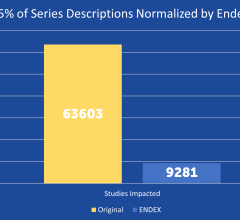
SPONSORED CONTENT — EnsightTM 2.0 is the newest version of Enlitic’s data standardization software framework. Ensight is ...
Much has been documented about the role of enterprise imaging as part of the larger effort to integrate a single longitudinal patient record. Despite the many ways an imaging effort reflects an organization’s electronic medical record (EMR) effort, there remain some distinct differences. For one, an enterprise imaging effort requires more careful understanding of peripheral and disparate systems. As an initiative, this primarily will serve as a support technology to the EMR and will be successful based on how it optimizes existing systems. Second, departmental workflow must remain uncompromised as part of an efficacious care delivery ecosystem. The challenges associated with deploying an EMR and the well-documented dissatisfaction on clinical workflow cannot, and should not, characterize enterprise imaging.
According to the National Institutes of Health (NIH), precision-based medicine is an emerging approach for disease ...
According to a recent study, one in four women with breast cancer who opt for a breast-saving lumpectomy will need a second surgery — increasing both costs and the risk of complications.
Hologic, Inc. announced that the Genius 3D Mammography exam is now the only mammogram that is FDA-approved as superior to standard 2-D mammography for routine breast cancer screening of women with dense breasts.
Editor’s note: In this article, David A. Strahle, M.D., candidly shares how and why he and his team became involved with the systematic development of an abbreviated protocol for screening breast magnetic resonance imaging (MRI) and what they learned after carefully evaluating the data. This original research was conducted by Strahle, Dorothy R. Pathak, Ph.D., Arlene Sierra, M.P.A., Sukamal Saha, M.D., and Catherine Strahle, D.O., and Kiran Devisetty, M.D.
Perhaps no issue has taken on more prominence in radiology than radiation safety for both patients and hospital staff. Several regulatory bodies have enacted guidelines in recent years to improve radiation dose monitoring and reporting for computed tomography (CT), including the Medical Imaging and Technology Alliance (MITA), which created the XR-29 “Smart Dose CT” standard. Beginning Jan. 1, 2016, the standard levied a reduction in Medicare reimbursement on the technical component of all diagnostic CT exams conducted on a non-compliant scanner. The initial reduction was set at 5 percent, but it jumped to 15 percent as of Jan. 1, 2017, giving providers and vendors even more incentive to closely monitor and manage dose.

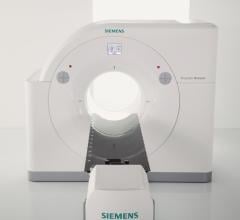
 June 12, 2017
June 12, 2017 
